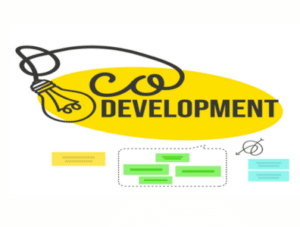Table of Contents
The difference between software engineering and system engineering is a crucial topic for anyone interested in the tech industry. Both fields play vital roles in today’s technology landscape, yet they have distinct focuses, responsibilities, and outcomes. Understanding these differences is essential for professionals looking to align their career paths with their interests and strengths.

What is software engineering?

Software engineering involves the design, development, testing, and maintenance of software applications. It focuses on writing code, creating algorithms, and ensuring that software performs as intended.
- Key Responsibilities: Coding and programming
- Software design and architecture
- Debugging and testing
- Continuous integration and deployment
- User interface and experience (UI/UX) design
- Tools and Technologies: Programming languages (Java, Python, C++)
- Integrated Development Environments (IDEs) like Visual Studio
- Version control systems (Git)
- Testing frameworks (JUnit, Selenium)
What is system engineering?
System engineering is a broad field that focuses on the design, integration, and management of complex systems. It involves ensuring that both hardware and software components work together seamlessly to meet overall goals and requirements.”
- Key Responsibilities: System architecture design
- Hardware-software integration
- Project management and coordination
- Risk management and analysis
- Requirements engineering
- Tools and Technologies: Systems modeling languages (SysML)
- Project management tools (JIRA, MS Project)
- Simulation software
- Configuration management tools
Key Differences Between Software Engineering and System Engineering

- Scope: Software engineering focuses exclusively on software, while system engineering covers both hardware and software.
Approach: “Software engineers focus on writing code and designing software architecture. In contrast, system engineers work on integrating various system components to ensure they meet overall system requirements.”.
Outcome: “In software engineering, the primary deliverables are software applications. In system engineering, the deliverables are complete, integrated systems that combine multiple software and hardware components.”.
Why Knowing the Difference Matters
Understanding the differences between software engineering and system engineering is crucial for choosing the right career path, selecting appropriate tools, and managing projects effectively.
What is System Engineering?
System engineering, in contrast, is a broader field that focuses on the overall design, integration, and management of complex systems. It encompasses both hardware and software components, ensuring that all parts work together seamlessly.
- Key Responsibilities: System architecture design
- Hardware-software integration
- Project management and coordination
- Risk management and analysis
- Requirements engineering
- Tools and Technologies: Systems modeling languages (SysML)
- Project management tools (JIRA, MS Project)
- Simulation software
- Configuration management tools

Why Knowing the Difference Matters
Understanding the differences between software engineering and system engineering is crucial for several reasons:
- Career Choices: If you’re choosing between a career in software engineering and system engineering, understanding the scope and responsibilities of each can help you select the right path.
- Project Management: For project managers and team leads, knowing these differences can improve project planning and resource allocation. For example, system engineering projects often need coordination across various disciplines, while software engineering projects focus deeply on coding and software design.
- Collaboration: In many projects, software engineers and system engineers must work closely together. Understanding each other’s roles can lead to better communication and more successful outcomes.
- Skill Development: Whether you’re a software engineer aiming to expand your skills or a system engineer wanting to deepen your software knowledge, understanding the intersection of these fields can help guide your professional growth.
Common Misconceptions
- Software Engineers Can Always Do System Engineering (and Vice Versa): While there is some overlap, software engineering and system engineering require different skill sets and mindsets. Assuming that one can easily do the other’s job can lead to project issues.
- System Engineering Is Just About Hardware: System engineering encompasses much more than just hardware. It involves the integration of hardware, software, and even human elements into a cohesive system.
Real-World Applications
- Software Engineering Example: Developing a mobile application like a banking app involves software engineering. The focus is on creating a secure, user-friendly, and functional application that meets the needs of its users.
- System Engineering Example: Designing an automated manufacturing line involves system engineering. The system must integrate machinery, robotics, control software, and human operators to produce goods efficiently and safely.
Check Website: click here



